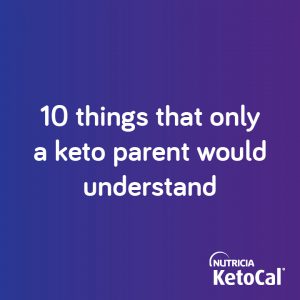 It’s hard to believe that summer vacation is almost here! Right about now, many of you are looking for summer activities, such as camps, to keep your little one busy over the break. Summer camp is an invaluable childhood experience full of fun, friendships and personal growth. But when your child has epilepsy, finding a suitable summer camp can be a bit more challenging. If your child is on a medical ketogenic diet for seizure management, it can be even more complicated. Fortunately, there are camps that can accommodate special circumstances and there are even camps specifically for children with epilepsy. With some extra research and planning, you can likely find a camp that will work for your little one. If you are eager for your child to experience summer camp but are unsure how to make it happen, today’s post will provide you with some resources to guide you.
It’s hard to believe that summer vacation is almost here! Right about now, many of you are looking for summer activities, such as camps, to keep your little one busy over the break. Summer camp is an invaluable childhood experience full of fun, friendships and personal growth. But when your child has epilepsy, finding a suitable summer camp can be a bit more challenging. If your child is on a medical ketogenic diet for seizure management, it can be even more complicated. Fortunately, there are camps that can accommodate special circumstances and there are even camps specifically for children with epilepsy. With some extra research and planning, you can likely find a camp that will work for your little one. If you are eager for your child to experience summer camp but are unsure how to make it happen, today’s post will provide you with some resources to guide you.
Choosing a Camp:
The first thing to consider is the type of camp that will work best for your child. In some cases, a standard camp (that is, not specifically for children with epilepsy) may work fine as long as the staff is made aware and prepared in case of a seizure.
In other cases, a camp specifically for children with epilepsy, with medical personnel on site, is the best option. Some parents prefer this option because it allows their child to make friends with other children with epilepsy and just be “one of the gang”. You and your child’s health care provider are the best judge of which option is most appropriate for your family.
If you are searching for an epilepsy camp near you, the Epilepsy Foundation provides a great list of camps in each state. You can also contact your Epilepsy Foundation affiliate to learn about scholarship options. One epilepsy camp that is located near us and that we love is Camp Great Rocks. This camp is run under the medical management of the Children’s National Medical Center Neurology Team. If you live close to the DC Metro area, be sure to check it out–It’s a very special place!
Once you choose the type of camp, you should also consider whether you are interested in a day camp, where your child attends during the day but comes home in the evenings, or overnight camp, where your child sleeps over at camp. There are also overnight camps for both children and their caregivers. Again, you are the best judge as to which option is most appropriate for your child.
Taking the Medical Ketogenic Diet to Camp:
These days, many camps are able to accommodate children with special diets, such as children with food allergies, so they may be able to accommodate a medical ketogenic diet, so long as you discuss it ahead of time and provide specific instructions. If your child is attending an epilepsy camp, they may already be familiar with the medical ketogenic diet. Note- KetoCal® 4:1 LQ works great as a snack or at mealtimes while at summer camp since it is easily transportable, requires no weighing or mixing, and does not require refrigeration.
Preparing for Camp:
Once you’ve selected a camp for your child, you can take steps to prepare the staff and help keep your child safe while having a great time. The Epilepsy Foundation provides some awesome tips and resources, listed below:
- Preparing Staff for Seizure Management
- Using Seizure Response Plans
- Participating in Camp Activities
- Staying Safe at Camp
- Water Safety
Hopefully this post has provided you with some tips and resources to help guide your camp selection process but, as you know, the best advice comes from other parents. Have any of your children attended summer camp on the medical ketogenic diet? What advice or guidance would you offer other parents who are considering it?
-Mallory
KetoCal® is a medical food for the dietary management of intractable epilepsy and is intended for use under medical supervision. Talk with your healthcare provider about whether KetoCal is right for you.


 Follow
Follow